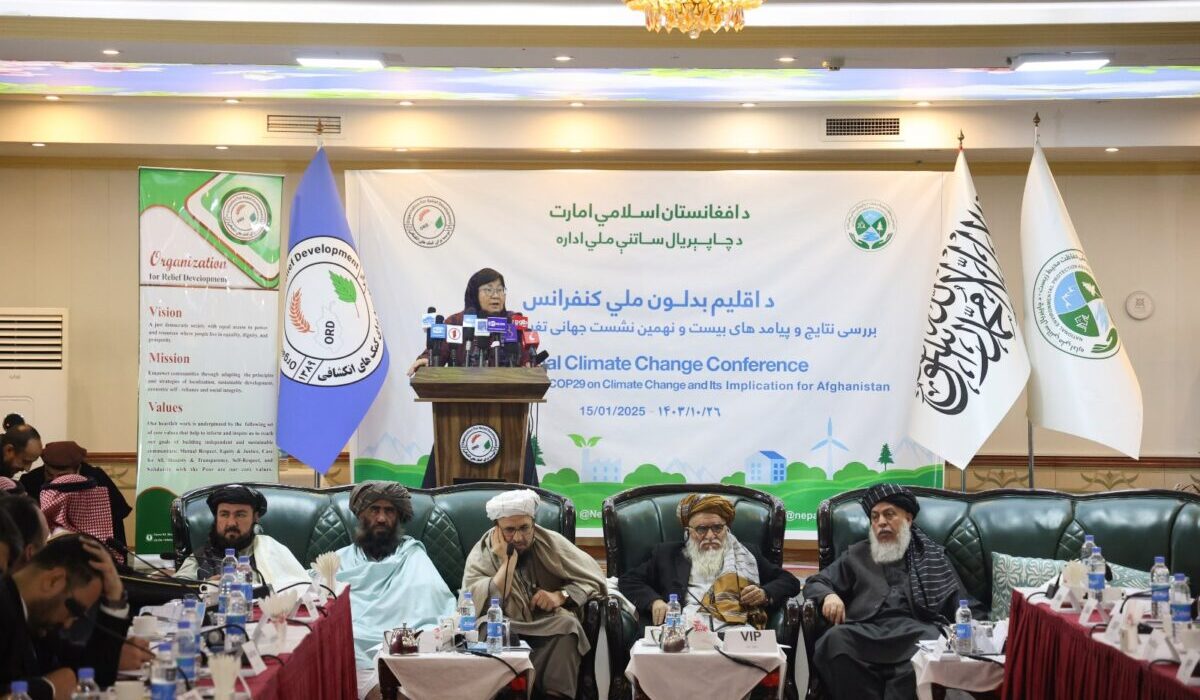KABUL, Afghanistan — Speaking at the National Climate Change Conference on Wednesday, Roza Otunbayeva, the head of the UN assistance mission in Afghanistan, emphasized the country’s acute vulnerability to climate change.
She pledged to advocate for Afghanistan’s access to climate financing and to explore avenues for Afghan representation at the COP30 climate summit.
“Afghanistan’s challenges are vast, but addressing climate vulnerability is critical to the future of its people,” Otunbayeva said, according to the United Nations Assistance Mission in Afghanistan (UNAMA).
The remarks follow a statement by Matiul Haq Khalis, Taliban’s head of the National Environmental Protection Agency, who called for Afghanistan’s inclusion in global climate talks despite its political isolation. Khalis described the Taliban delegation’s participation at COP29 in Baku as a notable “achievement” for the country.
“Afghanistan should not be excluded from addressing urgent environmental challenges due to political factors,” Khalis said during a session in early December.
At COP29, held in Baku last year, nations reached a landmark agreement to establish a $300 billion annual climate finance target by 2025, significantly increasing the previous $100 billion commitment. The deal, aimed at supporting poorer nations in combating climate impacts, calls on wealthier nations to lead the funding effort.
Afghanistan, one of the world’s most climate-vulnerable nations, has contributed minimally to global greenhouse gas emissions but faces severe consequences from rising temperatures, prolonged droughts, and erratic rainfall.




